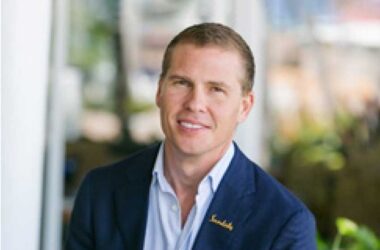
Disclaimer: the views presented are those of the author and do not necessarily represent those of any of the organizations he is associated with. Comments and feedback that further the regional dialogue are welcome at axel.kravatzky@syntegra-esg.com
In the last column, we looked at the rise of the corporation and decided that there is need to return to purpose. What is purpose? Organisational purpose is linked inextricably to shared beliefs about the world and expected behavioural norms i.e. organisational values. These beliefs and values supply the energy necessary to move forward in time and to face challenges and competitive pressures without the company losing its collective identity or its way.
In this Fourth Industrial Revolution, the challenges we face, taken as a whole, feel unprecedented and overwhelming.
Nation-states, governments, NGOs seem ill-equipped to deal with it individually. Except for good works here and there, at their core, most corporations have lost sight of their original purpose, having become mainly driven by a profit motive that is an accelerant to the fire that is consuming our planet.
How do we ensure that corporations, as collectives, can rediscover the original purpose that went beyond profit and become innovative to shift the balance? It is apparent that the now common approach to building organisational identity by articulating only mission, vision, and values is missing an essential component: the organisation’s meaningful and authentic true purpose.
CSR IS NOT THE ANSWER
Despite the good and dedicated work of so many working in the Corporate Social Responsibility (CSR) field, that approach has not led to the required systemic change. CSR was likely not born out of a true sense of purpose but was seen as an obligation and a response to increased expectations from the nations and communities in which they operate.
In 1970 Milton Friedman described such efforts as “one way for a corporation to generate goodwill as a by‐product of expenditures that are entirely justified in its own self‐interest.” There are, of course, instances where corporations have demonstrated bold, pioneering leadership in their journey to rediscover purpose. However, these instances are typically spearheaded by a charismatic and visionary leader. But corporations that depend only on the strength of one leader to rediscover their purpose are always at risk of returning to dysfunctional behaviours once that leader is gone.
TOWARDS WELLBEING
Most leaders can articulate the customer benefits that drive their company’s existence. The elephant in the room is that they are blind to see beyond that and determine just exactly how these benefits could be related to more fundamental concepts such as wellbeing. This may be the reason that mission statements, as they are currently written, effectively stop at parochial benefits, first-order customer-centric benefits that companies believe are within their spheres of influence. This is completely understandable because if the focus is only ‘doing’ and immediate transactions that lead to payments, they do not realize that the wellbeing of people and planet are also within their sphere of influence.
PURPOSE EMPOWERS INDIVIDUALS AND ORGANISATIONS
Organisations are governed by being directed, overseen, and accounting for achieving the organisation’s purpose. In order to define the organisation’s purpose, boards need to articulate what the organisation will achieve and for whom. What is the ultimate value that an organisation generates? What is their impact on wellbeing of people and nature? What is the core problem that the organisation solves profitably? How does the organisation ensure that it does not create or profit from harm? Members of boards must diligently ask themselves and each other these questions. In this way, boards can generate the meaningful and authentic ‘why’ for the organisations they are accountable for.
The next question that leaders of organisations, boards and management need to ask, is ‘how’? How does the organisation fulfil its purpose? There are two answers to that question. First, the organisation needs to develop, align, and utilize unique capabilities, act, and generate value by creating the solutions that solve the core wellbeing and ecosystem problems identified in its purpose. The answer to the ‘how’ or purpose is the organisational ‘mission’.
The second answer to ‘how’ an organisation fulfils its purpose, is by evolving as an organisation, by letting its people grow. The organisation evolves, and self-actualizes so as to fulfil its purpose as well as possible. How do people experience this evolved organisation? The answer to this question is the organisational ‘vision’.
Organizational leaders should also ask and check the reverse of ‘how’, namely, ‘why’? Why should the organisation pursue its mission or vision? The answer to both questions is the same: to fulfil its purpose.
A GRANDER VISION FOR BUSINESS
For the greatest part of the past two millennia, corporations had collective and social mandates at their core which addressed aspects of wellbeing. These societal ties were significantly ruptured in the 19th Century, and then took the most extreme departure from its origins in the last 50 years with shareholder centricity and profit as presumed purpose.
Average CEOs, down in the trenches, are focused on generating value for their customers and shareholders while minimizing any negative externalities from their company’s activities. Why should they care about the organisation’s purpose? The answer is that boards and managers that clearly and coherently define purpose, mission, vision, and values help to unlock the untapped and hitherto unseen potential of their companies. Together these concepts precipitate a shift in the frame of reference for the companies, widening the definition of what business they are really in.
Companies that reimagine their purpose with wellbeing at its core contribute to a sustainable future and can also unlock unseen adjacencies that can lead to new market opportunities, spur innovation and differentiation that will drive growth in their business that is sustainable and empowers people.

Dr Axel Kravatzky is managing partner of Syntegra-ESG Inc., chair of TTBS/TC309 Mirror Committee, vice-chair of ISO/TC309 Governance of organizations, and the co-convenor and editor of ISO 37000 Governance of organizations – Guidance. The Purpose Wheel © was developed by Kravatzky and Stephens in 2021. Comments and feedback that further the regional dialogue are welcome at axel.kravatzky@syntegra-esg.com













